-
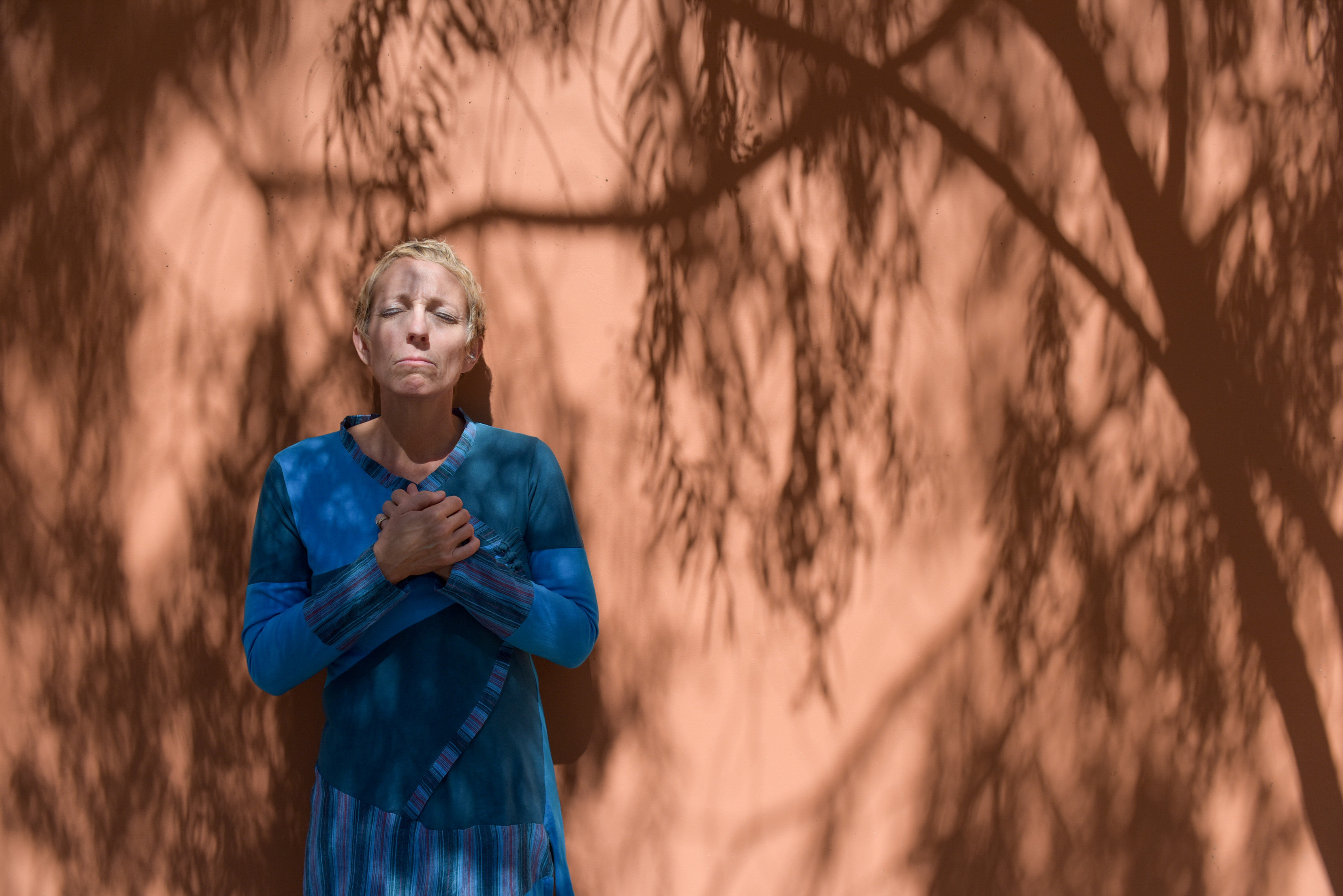
While undergoing 10 months of chemotherapy, Sharon Chappell, a mother, artist and associate professor of elementary and bilingual education, curated a Pollak Library exhibition that explores the personal, political, social and medical issues related to breast cancer: “Nevertheless, We Persisted.” Photographed on Friday October 5, 2018.(Photo by Michael Kitada, Contributing Photographer)
-
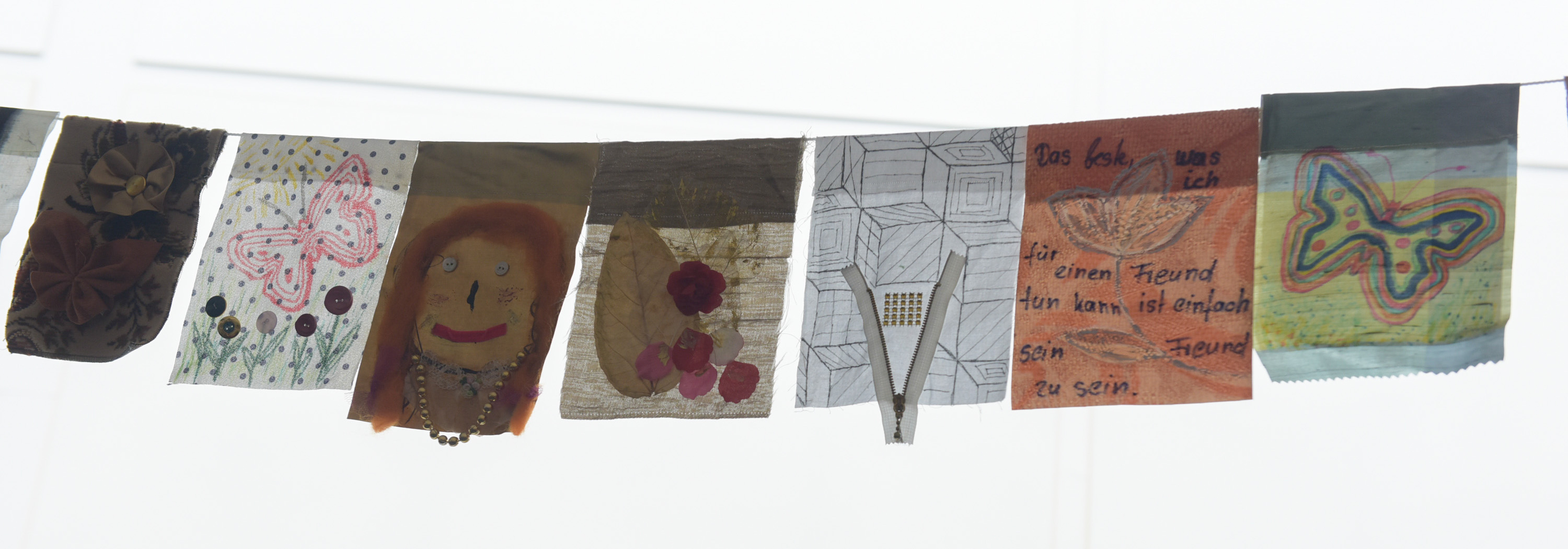
The show, “Nevertheless, We Persisted,” curated by Chappell and showing in the Pollack Library on the campus of Cal State Fullerton. Photographed on Friday October 5, 2018.(Photo by Michael Kitada, Contributing Photographer)
-
SoundThe gallery will resume inseconds
-
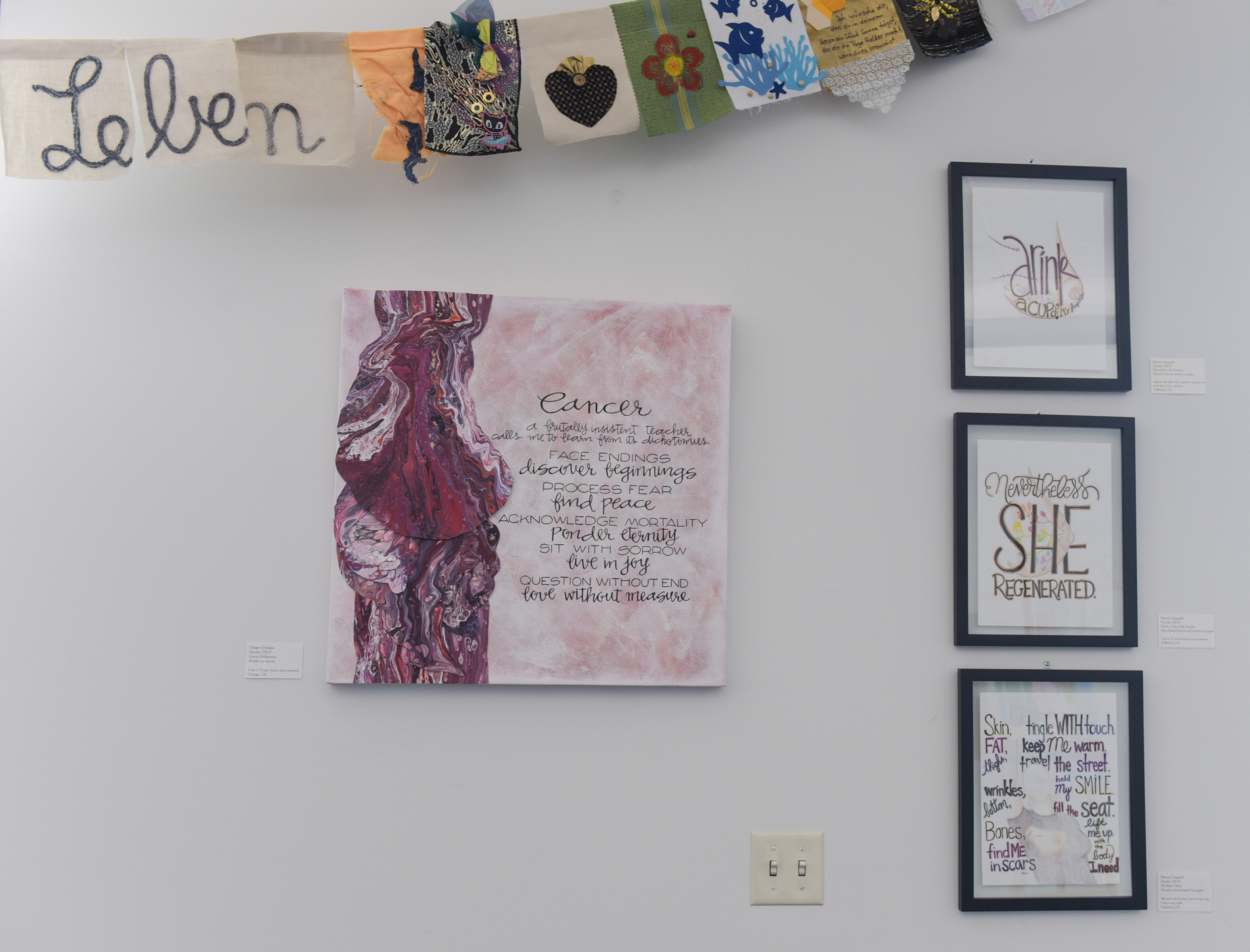
The show, “Nevertheless, We Persisted,” curated by Chappell and showing in the Pollack Library on the campus of Cal State Fullerton. Photographed on Friday October 5, 2018.(Photo by Michael Kitada, Contributing Photographer)
-
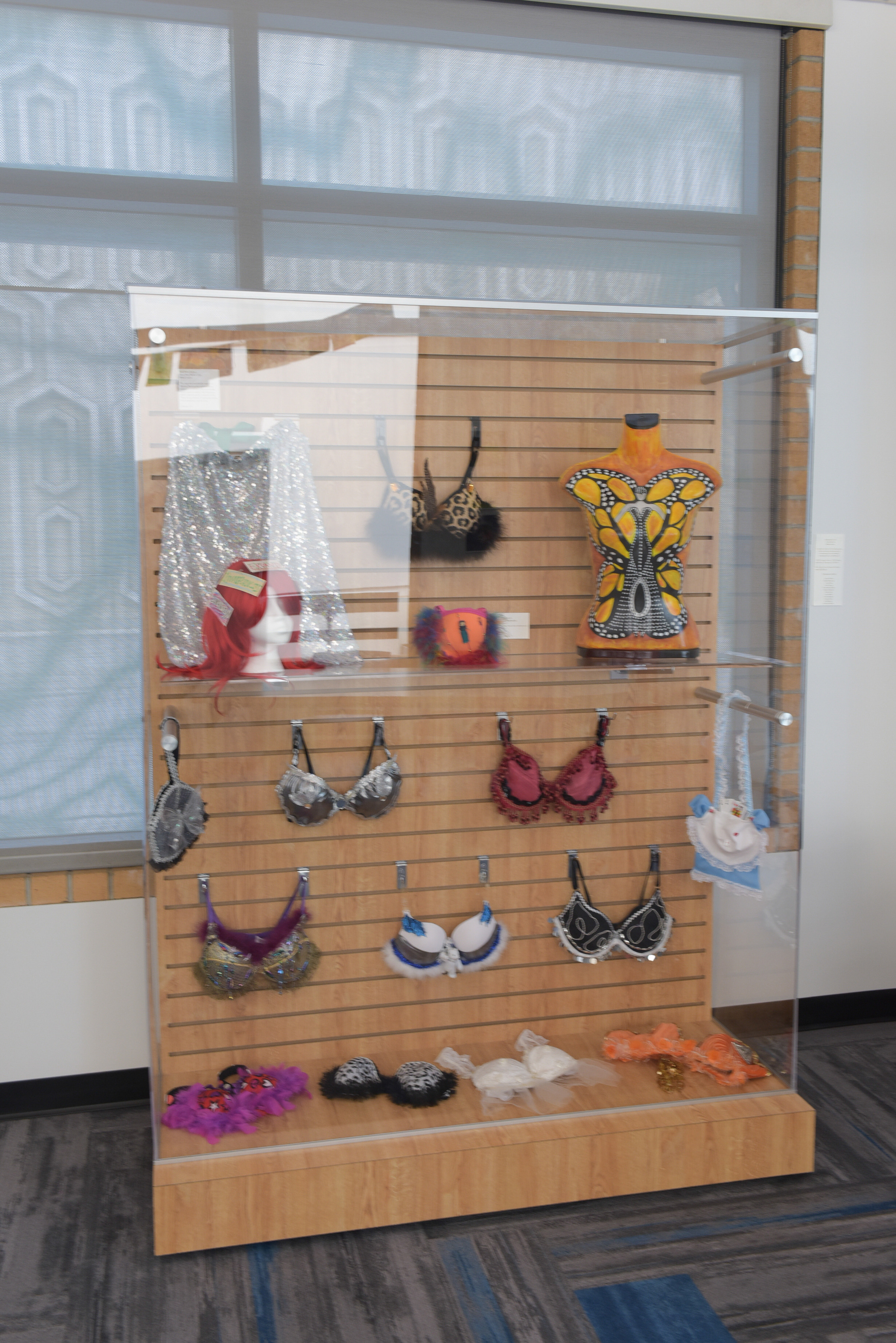
The show, “Nevertheless, We Persisted,” curated by Chappell and showing in the Pollack Library on the campus of Cal State Fullerton. Photographed on Friday October 5, 2018.(Photo by Michael Kitada, Contributing Photographer)
-
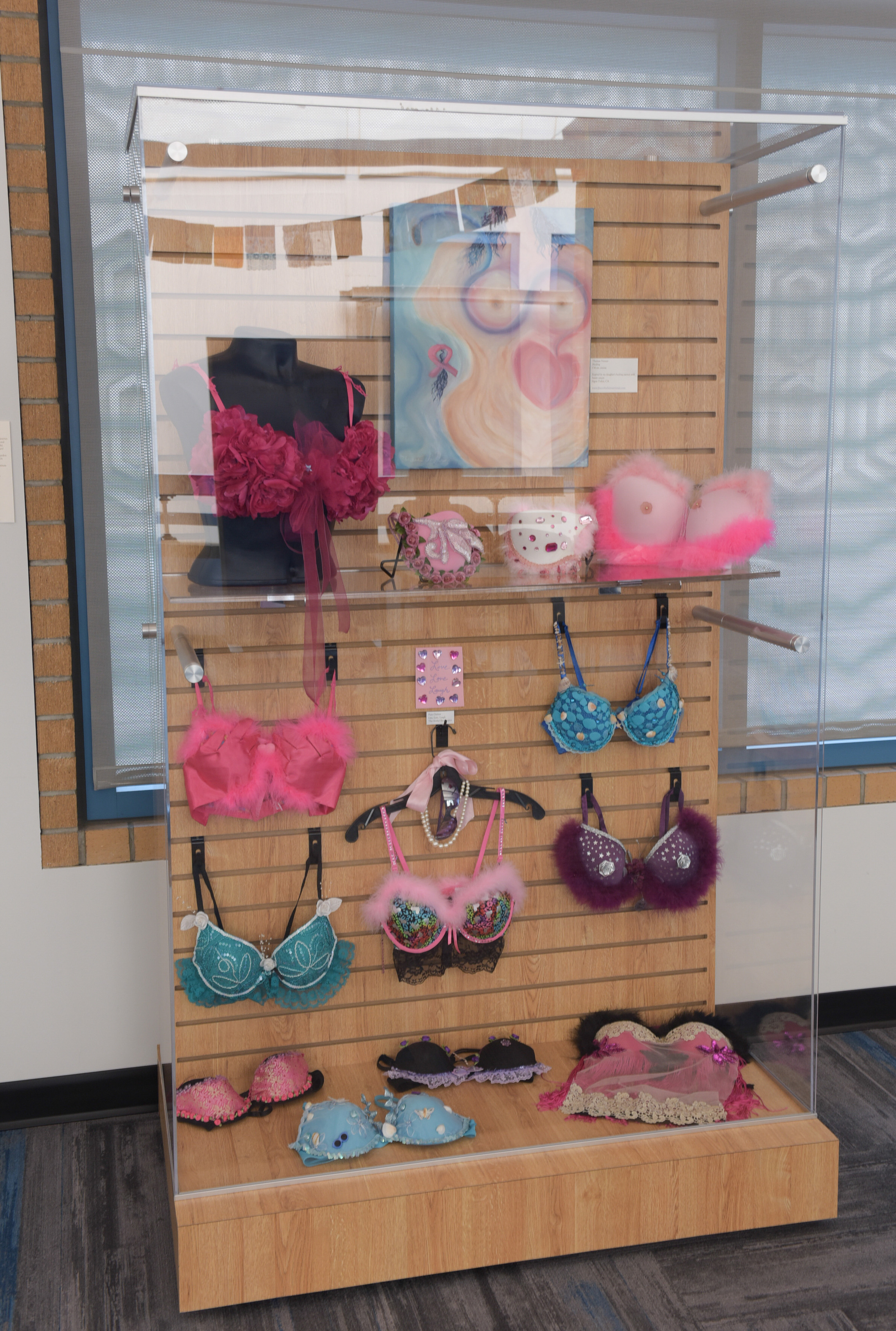
The show, “Nevertheless, We Persisted,” curated by Chappell and showing in the Pollack Library on the campus of Cal State Fullerton. Photographed on Friday October 5, 2018.(Photo by Michael Kitada, Contributing Photographer)
-
-
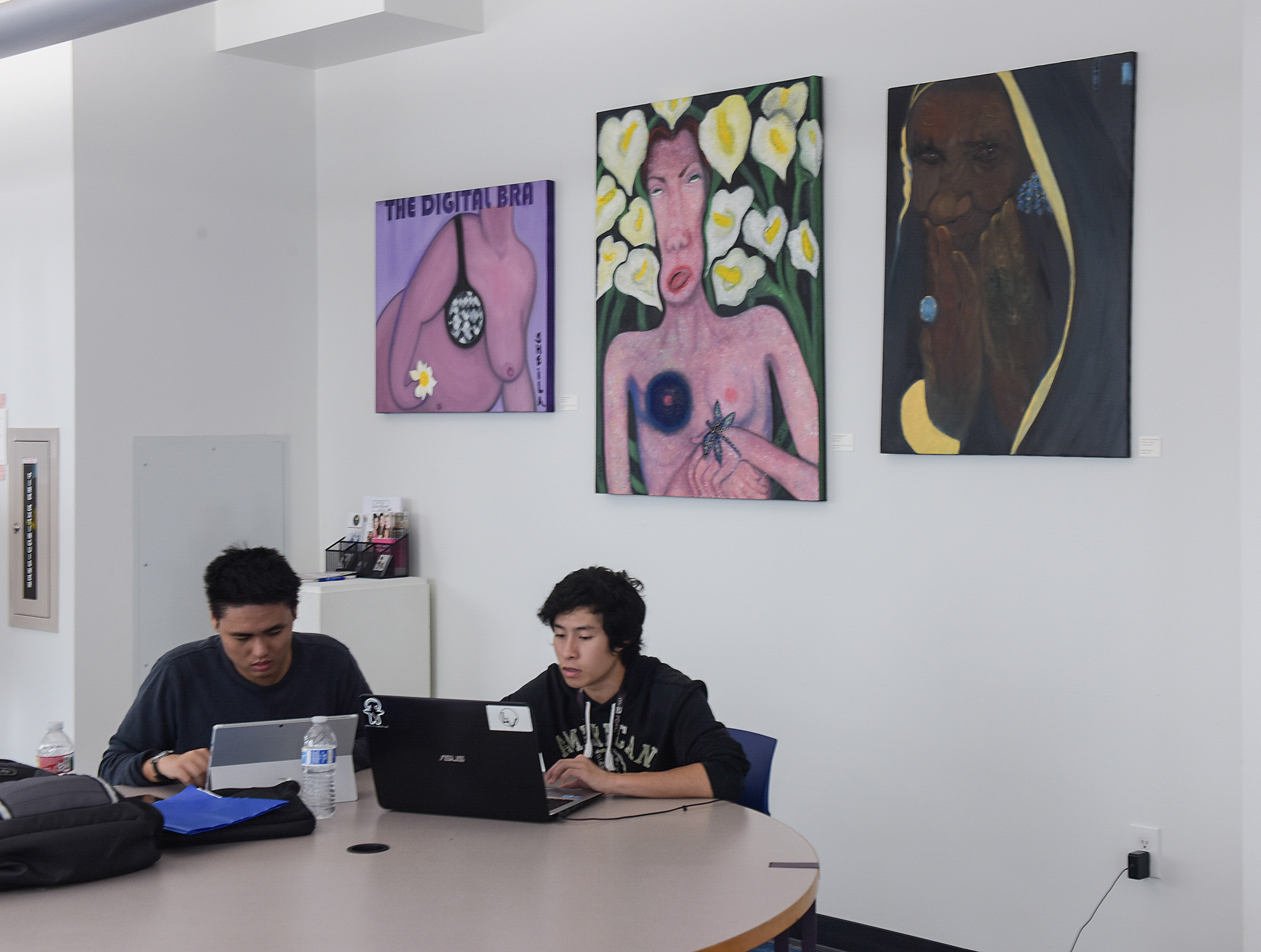
Students study under a few of the paintings in the show curated by Chappell and shown in the Pollack Library on the campus of Cal State Fullerton. Photographed on Friday October 5, 2018.(Photo by Michael Kitada, Contributing Photographer)
-
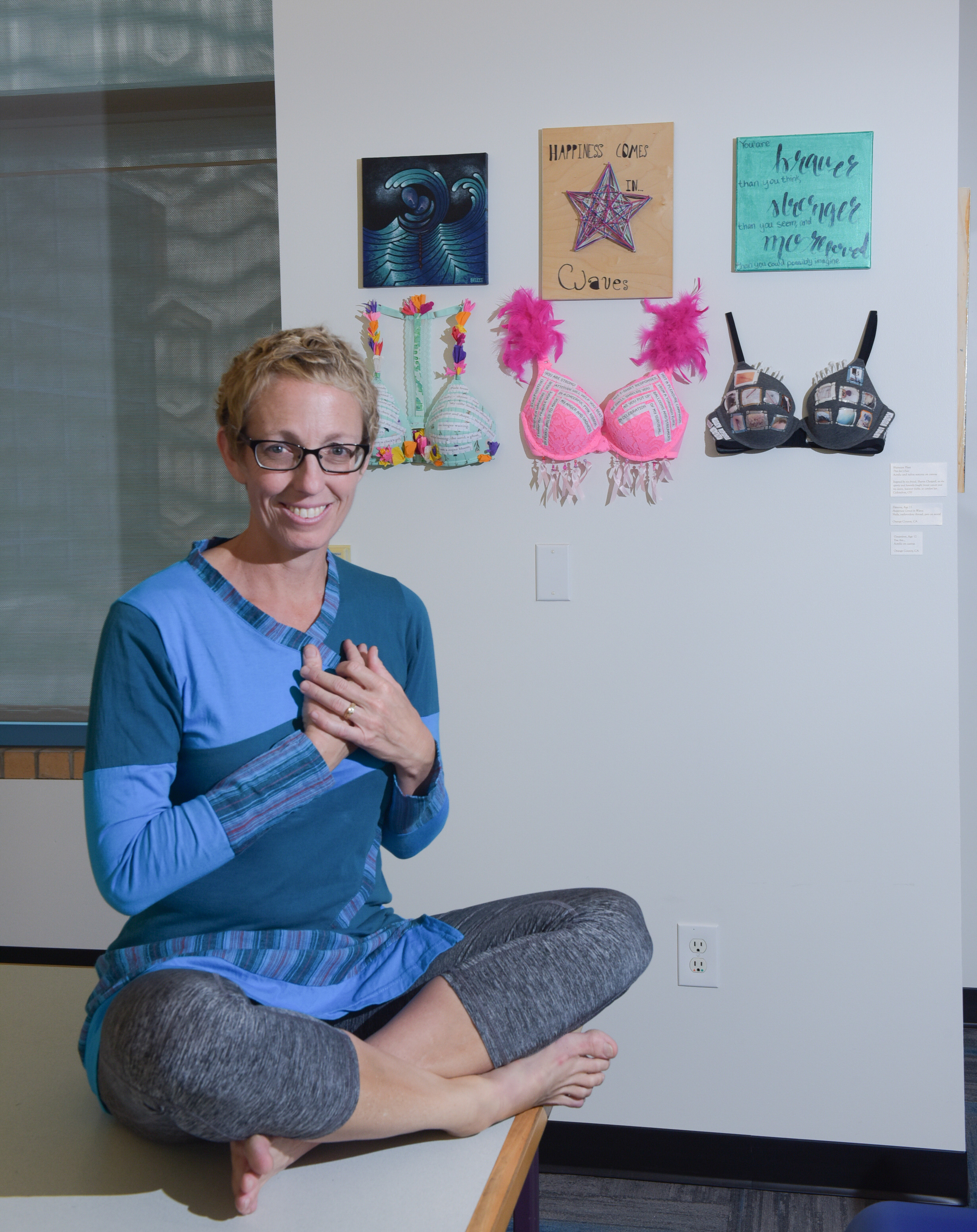
While undergoing 10 months of chemotherapy, Sharon Chappell, a mother, artist and associate professor of elementary and bilingual education, curated a Pollak Library exhibition that explores the personal, political, social and medical issues related to breast cancer: “Nevertheless, We Persisted.” The bras in the background were created by Chappell, photographed on Friday October 5, 2018.(Photo by Michael Kitada, Contributing Photographer)
-
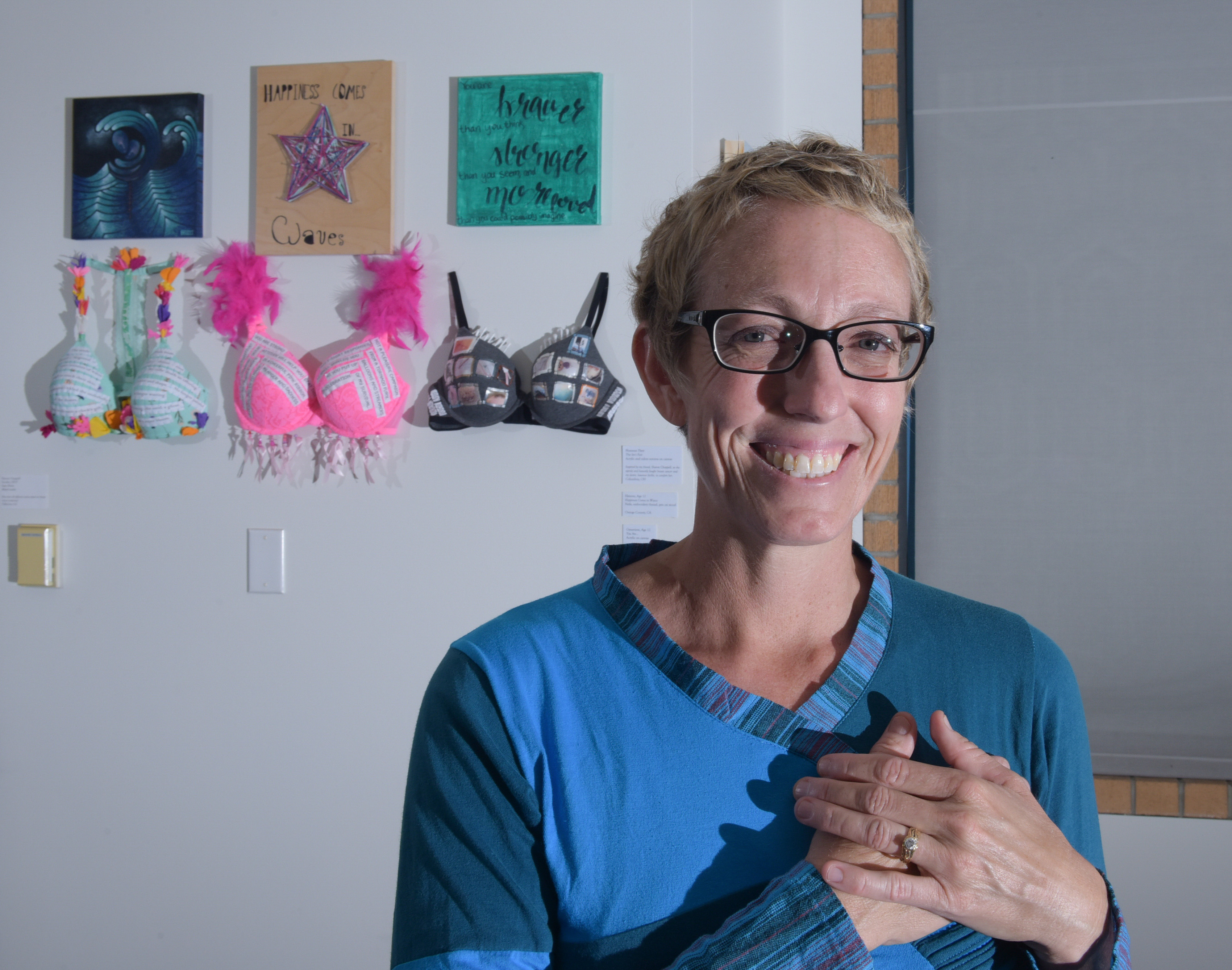
While undergoing 10 months of chemotherapy, Sharon Chappell, a mother, artist and associate professor of elementary and bilingual education, curated a Pollak Library exhibition that explores the personal, political, social and medical issues related to breast cancer: “Nevertheless, We Persisted.” The bras in the background were created by Chappell, photographed on Friday October 5, 2018.(Photo by Michael Kitada, Contributing Photographer)
-
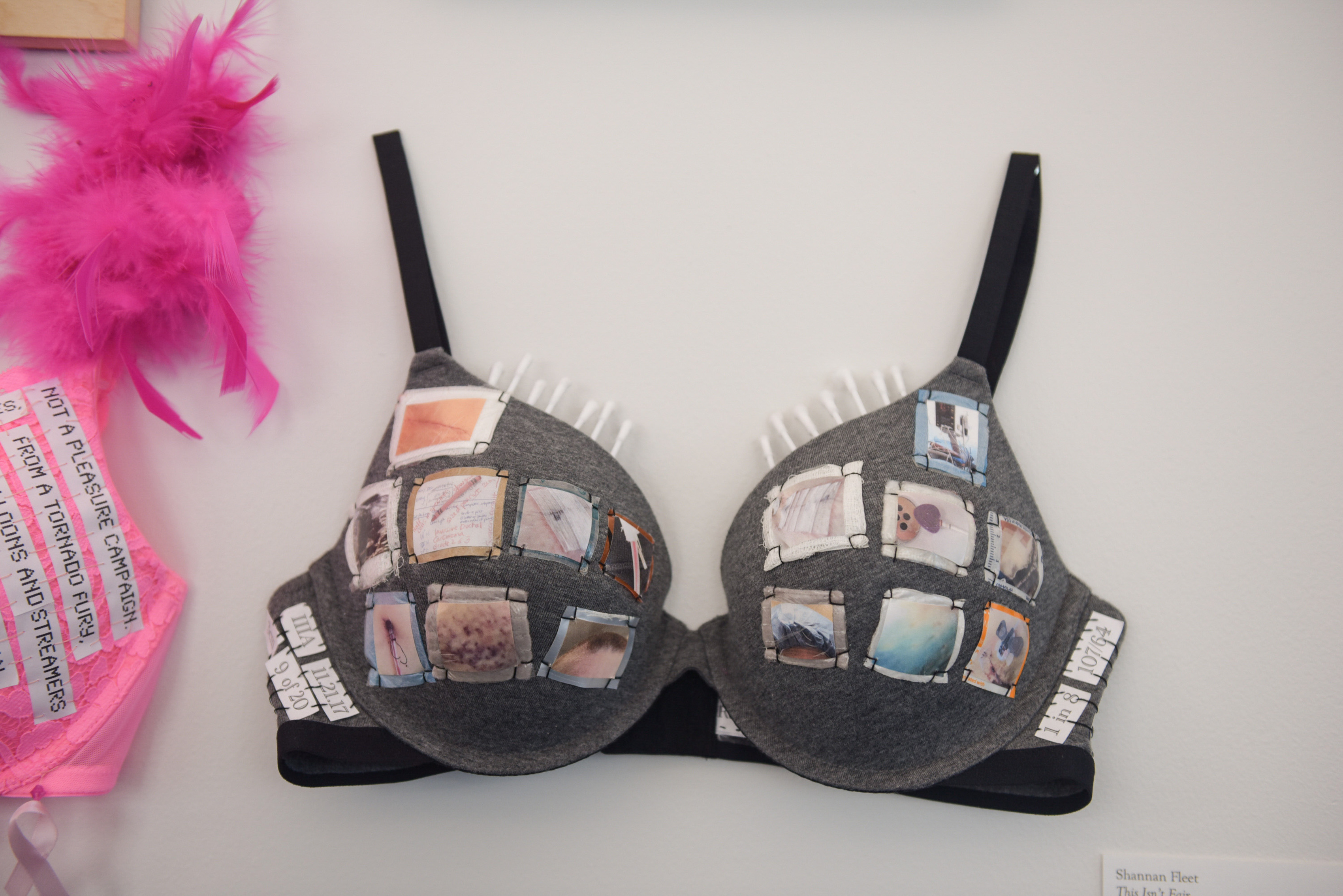
This bra has photographs of Chappell’s diagnosis and various procedures during the ten months of surgery, chemotherapy and radiation. Photographed on Friday October 5, 2018.(Photo by Michael Kitada, Contributing Photographer)
-
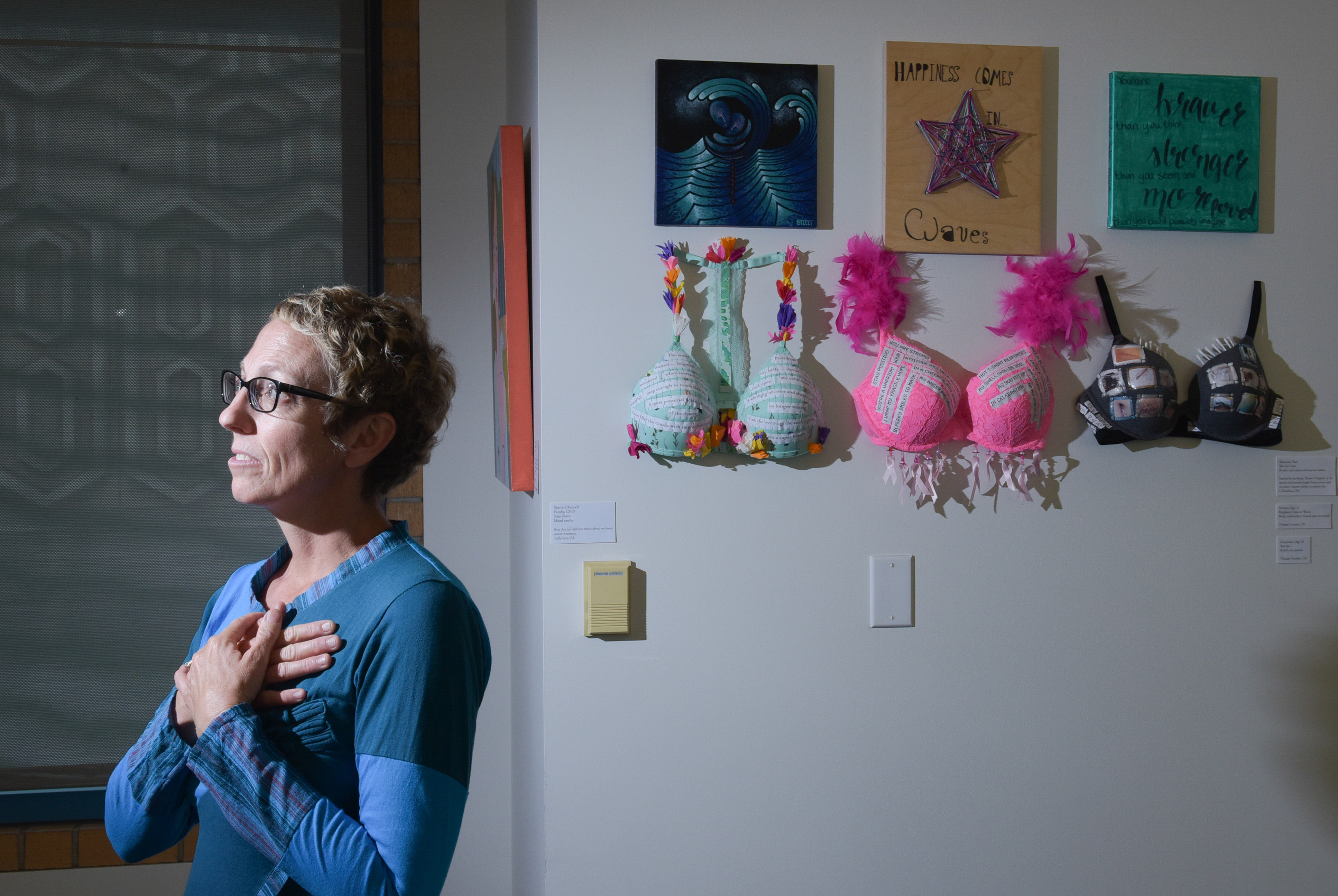
While undergoing 10 months of chemotherapy, Sharon Chappell, a mother, artist and associate professor of elementary and bilingual education, curated a Pollak Library exhibition that explores the personal, political, social and medical issues related to breast cancer: “Nevertheless, We Persisted.” The bras in the background were created by Chappell, photographed on Friday October 5, 2018.(Photo by Michael Kitada, Contributing Photographer)
Expand
Sharon Chappell experienced a burst of creativity from a very unlikely source: a breast cancer diagnosis.
Chappell, who went through 10 months of chemotherapy, grew frustrated with the lack of literature available to read to her seventh-grade daughter to help explain how cancer would affect her and their family.
So the CSUF assistant professor of elementary and bilingual education took the matter into her own hands, writing a children’s book, “The Little Green Monster: Cancer Magic!,” which will be published Nov. 2.
And as she worked on the book, as well as her own art and poetry to help herself cope with the disease, she took on another project — curating the exhibition that opened in the Pollak Library’s second-floor west terrace just in time for Breast Cancer Awareness Month in October.
“Nevertheless, We Persisted” features artworks by Chappell, fellow CSUF faculty and staff members, and local and national artists who are breast cancer survivors. It explores personal, political, social and medical issues related to breast cancer.
“Really, when you are faced with dying, there are a lot of ways you can approach it,” said Chappell, who was diagnosed with stage 3 breast cancer last November. “These women who have created the art have thrived. They see themselves as strong women and creative people whose voices need to be heard.”
According to the American Cancer Society, breast cancer is the most common cancer in American women, except for skin cancers. Currently, the average risk of a woman in the United States developing breast cancer sometime in her life is about 12 percent, or a 1 in 8 chance, Chappell said.
The exhibition, which takes up most of the library’s terrace, came together after Chappell reached out to the California Arts Council and others on campus for submissions.
Joy Lambert, a reference and instruction librarian at CSUF, made a Girl Scout sash that touts her achievements after being diagnosed with breast cancer in 2016 — two weeks before her daughter, Lily, was born.
“My doctors came up with a treatment plan, so as soon as my daughter was born the train left the station and treatment started,” she said. “It was pretty crazy, but now I feel great.”
Her star badge is her daughter.
“Everything I went through was worth it to be healthy for her,” Lambert said.
Along one wall are several display cases full of “Artful Bras,” colorful bras decorated with beads, fringe, feathers and other materials. One of Chappell’s contributions is a black bra that has photographs from her diagnosis and various procedures during chemotherapy and radiation.
“My bras were constructed with mixed media materials and hand-sewn poetry I wrote,” she said. “They were a way of me expressing my different experiences with breast cancer, from my reaction to the survivor pink, to the grid of photographs of my medical care, to the super bloom of creativity I felt during this difficult time.”
Strung along the opposite wall is a collection of healing flags, with scenes of sunsets, flowers, patches of fabric and inspirational messages.
At a public reception from 2-4 p.m. Oct. 20, visitors can participate in a ”Hope Made Visible” workshop led by expressive arts therapist Alessandra Colfi, who will help them create their own healing flag.
Below the flags is a collection of knit beanies that were given to Chappell. She wore them occasionally, but frequently left her head uncovered.
She explained why in a poem titled “Isn’t Your Head Cold?” Here is an excerpt:
“Every time I am asked to put on a hat,
to cover up, to hide my lack of hair,
I am reminded that chances are,
you believe my beauty is lost
(just temporarily, don’t worry).
I want to tell you: this body is my own,
I am embracing this head.
I don’t need a hat, thank you very much.”
Images from “The Little Green Monster: Cancer Magic!” are prominently displayed. Based on Zoe, a rescue parrot the family adopted after Chappell was diagnosed with cancer, the monster helps children when they are sad, celebrates special moments with them and reassures them.
“He’s full of magic and helped our family during difficult times in cancer treatment and he also helped us enjoy regular moments,” she said about Zoe.
The book also tackles questions children often have: why does hair fall out, how does medicine help and what is the difference between regular cells and cancer cells.
Chappell raised $8,000 to have the book produced and to provide copies to families affected by cancer. She makes herself available for readings and art workshops, where children can create their own “green monster,” in cancer support groups, libraries, schools and community centers.
As an elementary educator, Chappell said she has learned that being open and honest with children is the best way to help them get through difficult times.
“They want to know and feel better when they know,” she said,
Chappell’s father died of terminal brain cancer three days after her diagnosis, and she explained to her daughter the difference between a survivable cancer and a terminal case.
“She understood that the treatment can remove this cancer from my body,” Chappell said about her daughter. “It can be difficult, but survivable.”
Chappell said she has a grant in the spring to create partnerships with schools and hospitals to use literature and the arts to help children understand cancer. It’s a mission she finds herself increasingly drawn to.
And with her specialty in gender diversity and LGBTQ inclusion, she said she wants to make sure the program reaches communities that have been marginalized.
“I have learned a whole lot, and I feel now like the person I was trying to be before,” she said. “I feel like I am more that person now than I have ever been.”